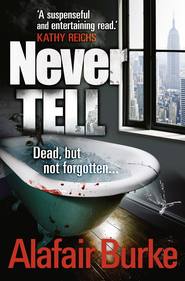По всем вопросам обращайтесь на: info@litportal.ru
(©) 2003-2024.
✖
Long Gone
Автор
Год написания книги
2018
Настройки чтения
Размер шрифта
Высота строк
Поля
She opened the bedroom door, expecting to find her daughter in that same sleeping position she’d used as a toddler—on her side at a diagonal, head rested on her forearm, one leg straight, the other bent like Superman taking flight, blankets and pillows scattered across the bed.
But the bed was empty.
She knocked on the bathroom door down the hall. Nothing. Opened the door. No one.
She walked back to the bedroom for another look at Becca’s unmade bed. Was it her imagination, or were the sheets bundled into the same knot as when she’d quickly pulled the door shut last night to hide the mess from Mark? Same with the bathroom: Becca’s paddle-shaped hairbrush was tossed on the right side of the sink counter, and the adjacent bottle of gel was capless, despite Joann’s repeated reminders about the cost of dried-out hair products.
Joann tried to convince herself she was wrong. Becca must have woken early and left for school already. Maybe she realized Mark was over and snuck out to give them privacy.
But as much as her brain tried to create a simple explanation, somehow Joann knew—truly felt the truth, at a cellular level. Her daughter had never come home last night. And the explanation wouldn’t be simple, if it ever came.
CHAPTER EIGHT
“Please tell me this is one of your practical jokes.”
It had been three weeks since Drew Campbell had signed the lease for the Highline Gallery. Now she stood, one night before the grand opening, feeling tiny beneath the eighteen-foot ceilings and next to Jeff Wilkerson’s six-foot-three frame.
Jeff’s comment was a reference to her long-standing habit of testing what she called his Indiana goodness.
“I know,” he would sometimes say, “I’m gullible.”
But gullible was not a word Alice would choose to describe Jeff. To call a person gullible was to imply he was stupid. But Jeff was no dummy. He’d been a top student at Indiana University, both as an undergraduate and then in law school, moving to New York City to work at one of the world’s largest firms. But after seven years of slaving away at billable hours, he realized that life as a big-firm partner wouldn’t bring any monumental changes, so had started his own law practice.
No, nothing about Jeff was gullible. He was well read and refined, brilliant even, as much as Alice hated the overuse of that word. But he still had that Indiana goodness. He was trusting. Earnest. Vulnerable. He wasn’t the kind of person who even contemplated the possibility that others would fabricate facts for mere entertainment. Jeff was good. And his vulnerability made him sweet. It also made him a tempting target for people like Alice.
She’d lost count of the number of times he’d fallen for her ridiculous stories: that some breeds of cats could grow their tails back, that a car’s stereo would stop working if the transmission fluid fell too low, that she’d had a bit part in the Aerosmith video for “Janie’s Got a Gun.” As for that last one, even when he called to complain he’d watched the entire clip on YouTube without spotting her, she only persuaded him to watch a second time as she listened, stifling her giggles.
Granted, her pranks had occasionally misfired. To this day, Jeff was convinced that her father disliked him because, on her recommendation, Jeff had eschewed the usual handshake on their first introduction, opting for a flash of the peace sign instead. Her father was bemused by the episode, but Alice saw no point in disabusing Jeff of his impressions, because in truth her father did not like Jeff, but for entirely different reasons.
She kept expecting Jeff to stop falling for her jokes, but he insisted she had a poker face that could break a casino. He’d express disbelief, and like Lucy with her football, she’d persist that this time she was serious. She suspected he often feigned the credulity, but even so, her white lies and his Indiana goodness formed one of the few patterns that had cemented in their ever-fluid relationship.
Unfortunately, this was not another occasion for leg-pulling. They stood side by side, Jeff with his hands on his hips, Alice with crossed arms, perusing the series of black-and-white photographs.
“Those of us in the art world would refer to this as high concept,” she said.
“Nice try for your consumer base, but you forget that I know you. And I know that you know this is a bunch of pretentious crap.”
She tried out her most authoritative gallery-managing voice. “The artist refers to the SELF series as a portrait in radical introspection. By examining the baseness of raw physicality, we reveal our true selves and can therefore achieve a higher level of inner reflection.” She’d been diligent throughout the day in referring to Hans Schuler as “the artist” and to these photographs as the “SELF series.” As she stumbled through the words, she realized it might take more than a day to overcome the bad habits formed over the last two weeks, when she continually referred to Schuler as the “German Boy Toy” and to his pictures as her “porn collection.”
The centerpiece of the series was a photograph he called Fluids, featuring a taffylike strand of drool stretched from his lips to the bloody bite marks in his wrist. His hairy wrist. Prior to seeing the diverse variety of exposed Schuler flesh in close-up, she had no idea that one body could contain so much fur. She posed next to the Fluids photo in mock contemplation, placing the hook of her index finger beneath her chin.
“Can you picture me now on the cover of New York magazine? I can already imagine the tagline: ‘New Highline Gallery Seeks to Mainstream Radicalism.’”
He shook his head. “That is scary. You could actually pull that off, Al. Maybe you should have been an actress after all.”
She usually hated all iterations of shorthand for her already short name, but for some reason, when Jeff had taken to calling her Ally and then Al when they’d first met seven years ago, she had never minded.
“I feel like I’m selling snake oil. Radical introspection? What does that even mean, and why would we want to mainstream it?” She found the photographs aesthetically unappealing and intellectually vapid, so had simply pulled catchphrases from the artist’s Web site when drafting her own materials for the exhibit. “Please remind me I just have to make it through this first show, and then I can start highlighting actual artists.”
According to her deal with Drew, the Highline would open with an exclusive three-week showing of Schuler’s SELF series. She would have to continue selling Schuler’s work afterward, but could move on to showcasing other works.
“Just hang in there, all right? This is a good gig. You’re going through the rough patch now.”
She grimaced. “I don’t think I like the idea of anything rough or patchy with our friend Hans here.”
“So what is the man who bites himself bloody like in person?”
She plopped herself down on the low white leather banquette at the center of the gallery space and clucked her tongue. “You see. Now there’s the catch.”
“You mean to tell me that Hans’s hairy porn isn’t the catch?”
“Just a part of it, I’m afraid. Schuler apparently read one too many J. D. Salinger obits and has decided he’s a recluse.”
“Salinger went into hiding because he couldn’t stand the public attention anymore. Does your guy realize no one’s even heard of him?”
“First of all, he’s so not my guy. And yes, of course he realizes this, but he thinks being a supersecret man of mystery will give him an allure. Drew tried to persuade him otherwise, but he says the only appearances that matter are the images he chooses to reveal in film.”
“But you’ll meet him at his show?”
“Nope. He’s not coming.”
“That’s … well, that’s ridiculous. How does he expect to sell anything?”
“That’s where we get to the mainstreaming part. How much do you think a Hans Schuler will run you?”
“Clueless on that, as you well know.”
“Guess.”
They’d had countless discussions about the randomness of art prices. Art was worth whatever a buyer was willing to pay in an arm’s-length transaction on the open market. “I don’t know. I guess it depends on how many photographs he’s printing and signing. Assuming he runs a series of—what, a couple hundred?—I’d guess you’re charging at least a few thousand dollars.”
“Seven hundred bucks.”
“Dudes in Union Square Park charge more than that.”
“That’s why he says he’s mainstreaming radicalism. He’s making high-concept art available to any and all. And there’s no limited print run. Take a look at that lower right-hand corner there.”
Jeff did a half-raise forward to get a closer look. “What a cheese-ball.”
Instead of marking each piece 1/some number to indicate where a particular print fell in a limited numbered series, Schuler had penciled “1/8” onto every photograph to indicate an infinite run. According to him, there was no need to restrict art’s supply to make it precious. The very advantage of photography as a medium, he pontificated in the artist’s notes that accompanied the prints, was the ability to produce identical replications. By lowering the price, he would make his work accessible to more people, making him more influential than any artist who sold only a handful of pieces, no matter the price.
Alice suspected that Schuler himself didn’t believe a word of his trite puffery. The plain fact was that Schuler’s plan, if successful, would pocket him far more cash than a traditional showing for an unknown artist could possibly hope to yield.
She walked to the low white desk at the front of the gallery, removed an item from the top drawer of the steel side-return, and tossed it in Jeff’s direction.
“Nice catch.”
He inspected the tiny thumb drive. “Self,” he said, reading the simple personalization aloud. “So what is it?”








